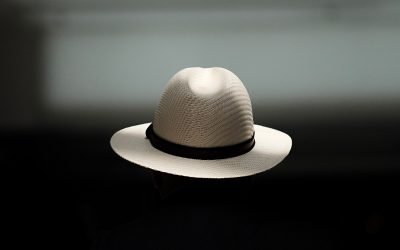6 tips to practice singing at home
Unlike any other musical instrument, your voice is an instrument you carry with you everywhere. But before you start your regular practice at home you need to consider a few things.
Consider the neighbours
To avoid the wall-banging/complaining neighbours, before you start practicing at home I suggest a common courtesy of informing your neighbour(s) that you will be doing this on a regular basis. Acquire the information during which time slots you are allowed to practice by law but also see with your neighbours if you can agree on the time. If you make sure that you are not practicing your new (somewhat noisy) skill during someone’s baby’s regular nap time, or your neighbours sleep who happens to work a night shift things will go a lot smoother and you will be able to enjoy practicing at home. If this proves to be impossible try and consult your teacher or fellow student on how to find a space you could rent to practice undisturbed.
Consult the teacher
To assure you are not doing more harm than good make sure things you’re practicing on your own are the ones your teacher is telling you to focus on enduring lessons especially if you are a beginner. Consult on which exercises you can do on your own, the exact range in which they should be done, and the length and frequency of your home practice. Some teachers will even tell you not to practice alone after the first few lessons. That is because you have no clue what you are doing and by trying things unsupervised you might do more harm than good.
If you are a bit further on; pay attention to your lessons and if needed take notes on what specific things you need to improve on so that you can give them extra attention in your practice.
Selecting your space
Selecting a space you will practice in is very important. While some people will have the luxury of dedicating an entire room for these many others don’t but this shouldn’t discourage you – there are many ways in which you can make space practice friendly. There are a few things to consider.
Acoustics
The room you chose should not be too small or have a very low ceiling. It should also not be empty. Over acoustic spaces while nice to sing in because the eco effects are not a place in which a beginner can keep a good track of their vocal technique and it might cause him to push or not use enough energy to sing. It is also really bad for your neighbours. If your practice room is overly acoustic consider adding some carpeting or curtains but make sure you add one thing at the time as the goal is to create good acoustic not make the space totally deaf.
Foot traffic
When you practice you want to be fully focused and you will want a space in which you can be left alone and undistracted for a certain period of time. If you do not live alone this will most likely not be a living room or a hallway. The hallway is never an ideal space due to potential foot traffic narrow walls and proximity to your front door (and neighbours).
What will you need
There are a few essentials for your practice space. You can expand as you go and your budget allows you.
Piano
If you are just starting and unsure how far you would like to go with your singing practice you might start with an app on your phone which will give you a keyboard so you can keep track on pitches you give yourself while practicing but as you progress I urge you to invest in a keyboard clavinova or a piano. Whichever your option is, make sure that it’s tuned at 440hrz so that the pitch you see is also the pitch you will be singing.
Mirror
A full-length mirror would be ideal but you can start with one in which you could observe your head and upper body.
Music stand
Keeping your music readily available and your body free
Recording device
Useful but really non-essential in the beginning. It is great for keeping a record of your lessons and practice sessions. You can listen (and watch) and compare how successful you were in repeating things done in a lesson with things done during self-practice. If questions arise you might wanna show a specific section of your practice to your teacher and consult on what you can improve on.
Maximizing practice time
To make sure you are getting maximum out of your practice, make sure you are free of any distractions. Alert the people in your household that you will be doing some practice and ask not to be disturbed. If there is a TV in the room make sure it’s not only on mute but that it is turned off. If using your phone for pitches or to keep track of time – make sure you put it on airplane mode so you do not receive any messages and phone calls. If your lifestyle allows it, make sure you have enough time after waking up before you practice and that your body and mind are fully awake.
Last but not least: fun is a great motivator. It keeps us inspired and it helps to keep us going through the tough bits. That said there is such a thing as having too much fun during practice. Just enjoying and “practicing” mindlessly can often do more harm than good. It can leave you with a sore throat because you were (thinking you were) singing “your ass off” but you were most likely mindlessly putting too much strain on your voice. Everyone does it now and then but calling it practice is wrong. Follow your teacher’s advice and do what he told you to work on even if it doesn’t seem like much fun – it is for your benefit, not theirs. Be present, focus on your voice and what you are doing. Then do it again and again and then some more.
Follow the old saying of:
How do you get to Carnegie Hall?
Practice! Practice! Practice!
All jokes aside, stick to regular focused practice and you will reap the fruits of your labor.






